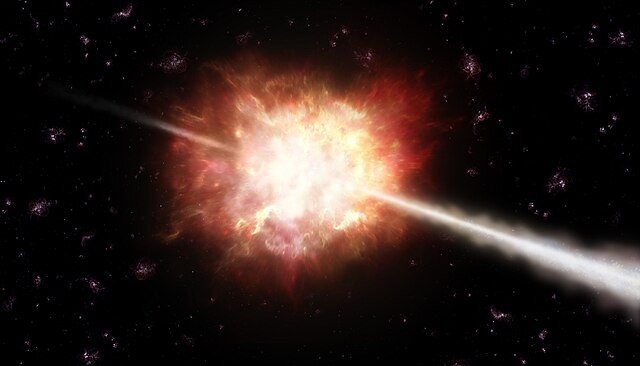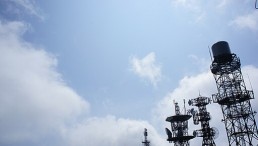
(Photo : Wikimedia Commons/ESO/A. Roquette)
The alien civilization is expected to be more advanced than human civilization. Thus, many are still wondering why the extraterrestrials haven't reached out to them, and one astronomer shared his "morbid" theory about the lack of communication.
Morbid Alien Theory: Why Extraterrestrials Haven't Contacted Us?
Many believe that there's life beyond planet Earth, and that's why researchers are doing various studies in the hopes of finding them. While humans are trying to contact them, there seems to be no effort from the purported alien civilization to reach out to us.
There are several possibilities, such as the lone proposition that intelligence on par with the human level is wholly "unique" in the cosmos, but one scientist has disclosed a more plausible theory: alien civilizations were wiped off by gamma-ray bursts (GRBs).
When a giant star runs out of nuclear fuel and falls under its own weight, a massive "supernova" of radiation is released. These extremely powerful explosions, known as GRBs, have been seen in far-off galaxies.
"It's a tightly focused beam," explained astronomy professor Dr. Frederick Walter. "And, if it's directed through the plane of the galaxy, it could basically sterilize about 10 percent of the planets in the galaxy."
He acknowledged that his theory was only one of the possible explanations. He also knew that it was "sort of morbid."
Gamma-ray bursts are "the most powerful class of explosions in the universe." A typical burst produces one quintillion (a 1 followed by 19 zeros) times the brightness of our sun. The energy is more than enough to completely destroy an alien civilization from its home galaxy.
Fortunately, gamma-ray bursts are relatively infrequent in our home galaxy, the Milky Way, according to decades of research conducted by NASA's orbiting Compton Gamma-Ray Observatory.
NASA scientists anticipated seeing additional GRBs coming from our pancake-shaped galactic disc when the Compton observatory satellite was launched in 1991.
It was discovered that, in actuality, super nova events were considerably more prevalent in younger, distant galaxies that were still creating new stars or, in the case of long-duration GRBs, turning collapsing stars into black holes.
Dr. Walter, who has lectured at Stony Brook University in New York on the hunt for extraterrestrial life, estimates that there is a gamma-ray burst every 100 million years or so in any galaxy, and one could reasonably expect it to eradicate a number of civilizations if they exist.
BOAT: The Brightest Gamma-Ray Burst
A GRB officially designated GRB 221009A and dubbed the brightest of all time (BOAT) was detected on Oct. 9, 2022. Its unique features set it apart from other GRBs.
High-energy gamma rays were seen to burst into an exceptionally bright burst, with a weak afterglow that faded throughout a broad range of light wavelengths.
The study's lead author, Brendan O'Connor, a researcher at George Washington University, stated that GRB 221009A demonstrates that the most extreme explosions defy the conventional physics thought to explain common gamma-ray bursts and represents a significant advancement in our understanding of gamma-ray bursts. O'Connor led a team that used the Gemini South Telescope in Chile to make additional observations of the BOAT GRB.
GRB 221009A is believed to be at least 10 times brighter than previous exceptionally intense GRBs, according to Jillian Rastinejad, a Ph.D. candidate at Northwestern University and one of the team members who observed the BOAT on October 14, the day after it was first identified. The researcher claims that photons from this GRB have energy higher than that of the Large Hadron Collider (LHC).
RELATED ARTICLE: Gamma-Ray Burst GRB 221009A Breaks Records; So Powerful It Affects Earth's Ionospheric Conductivity
Check out more news and information on Gamma Ray Burst in Science Times.

![Some Brain-Injured Patients Who Died After Life Support Was Withdrawn May Have Survived, Recovered Some Level of Independence 6 Months After Injury [Study]](https://1721181113.rsc.cdn77.org/data/thumbs/full/53613/89/56/50/40/some-brain-injured-patients-who-died-after-life-support-was-withdrawn-may-have-survived-recovered-some-level-of-independence-6-months-after-injury-study.jpg)












